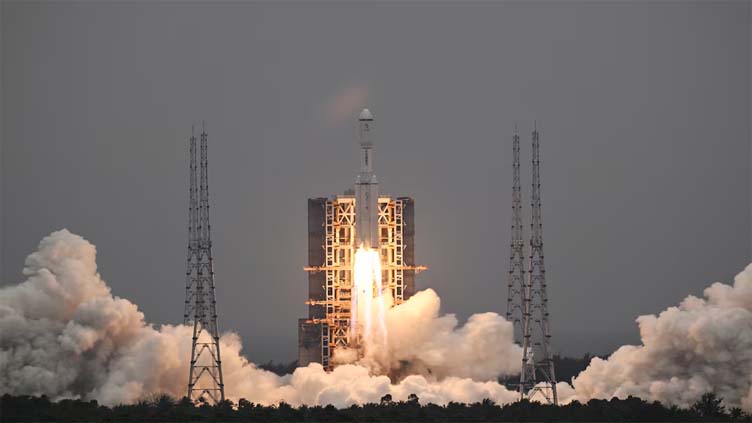China says foreign spies trying to steal space program secrets

Technology
High-precision satellites had emerged as a focus in modern warfare
HONG KONG (Reuters) - China's state security ministry said foreign spy intelligence agencies have been trying to steal secrets from the country's space programme as the arms race in space intensifies and emerges as a new "battlefield for military struggle".
Safeguarding space security had become a key strategy for China's future survival and development, the ministry said in a post on its official Wechat account on Wednesday.
"In recent years, some Western countries have formed space combat forces, exercised space action capabilities and even regarded (China) as a major competitor in the space field," it said.
Foreign spy intelligence agencies had also conducted remote sensing detection against China through high-precision satellites, intending to observe and steal secrets from China from space.
It did not name any specific countries but said some had "carried out infiltration and stealing activities in China's aerospace field".
High-precision satellites had emerged as a focus in modern warfare, with their importance a highlight in Russia's war on Ukraine where real-time and ultra-detailed images would offer substantial leverage in the battlefield.
Competition for space resources was becoming "increasingly tense", space exploration faced a shortage of orbital and spectrum resources, and abandoned satellites and rocket debris increased the risk of collisions.
China’s lunar strategy includes its first astronaut landing around 2030 in a programme that counts Russia as a partner. In 2020 China conducted its first lunar sample return mission with Chang'e-5, retrieving samples from the moon's nearer side.
In June, China landed an uncrewed spacecraft on the far side of the moon, overcoming a key hurdle in its landmark mission to retrieve the world's first rock and soil samples from the dark lunar hemisphere.
Its space agency has set 2035 as the date by when a "basic station" on the moon's south pole will be built, with a moon-orbiting space station added by 2045.


